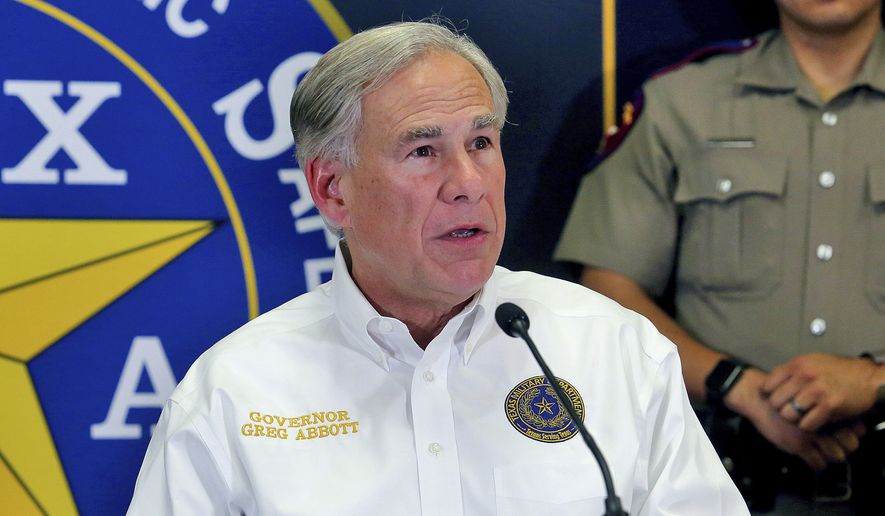Commercial traffic at a key U.S.-Mexico border crossing has reportedly ground to a halt after Mexican truckers blocked lanes to protest a new inspection policy from Texas Gov. Greg Abbott.
The protests at the Pharr-Reynosa International Bridge are raising concerns about a shortfall in produce deliveries from Mexico, including avocados, broccoli, peppers, strawberries and tomatoes, the Biden administration said Tuesday.
U.S. Customs and Border Protection said commercial traffic has been “100%” shut down because of the Mexican protests, aimed at Mr. Abbott’s decision to stiffen state inspections on commercial vehicles that cross the border.
The Republican governor says trucks can be used to smuggle humans and drugs.
He imposed the inspections in response to President Biden’s recent decision to lift Title 42 — a pandemic-related provision that allowed the U.S. to swiftly turn away illegal immigrants at the border — in late May.
Truckers say the new inspections take too long and are redundant.
Traffic began to back up quickly soon after the Republican governor’s announcement last week.
Todd Bensman, a Texas-based fellow at the Center for Immigration Studies, said the pain may well have been part of Mr. Abbott’s plan.
He said during the last administration, President Trump used the threat of economic sanctions to force Mexico to take steps to help stop the 2019 border surge. Within weeks of Mr. Trump’s threats, Mexico had acted and the border situation began to clear.
“It remains to be seen whether Abbott will relent before he forces bigger players to the table, if that’s the game,” Mr. Bensman wrote in an analysis. “One state government official with knowledge of the situation said the operations will go on next week and be couched as a public safety matter for Texas, nothing more.”
The Border Trade Alliance, a nonprofit that represents public and private sector clients impacted by North American trade, said CBP conducts its own inspections and the state rules could lead to an increase in consumer prices.
“We oppose any state-level action that results in an inspection process that duplicates the inspections already performed by U.S. Customs and Border Protection, whose work at the land border ports of entry is informed by highly attuned risk assessment models, intelligence gathering, and a commitment to the agency’s dual mission of enforcement and facilitation,” the alliance said. “While border states like Texas have an important role to play in ensuring truck safety and code compliance, the state should be working in collaboration with CBP, not engaging in a new inspection scheme that will slow the movement of freight, which will only exacerbate the country’s supply chain crisis and put even more upward pressure on consumer prices.”
CBP said commercial traffic wait times at the Pharr bridge, which usually averages a little more than an hour, had topped five hours before the protests halted all traffic.
The Columbia Solidarity Bridge into Laredo has seen wait times surge from less than half an hour to five hours, and seen overall commercial traffic plunge 60%.
And in El Paso, wait times went from 52 minutes to 335 minutes at their peak, with a 50% drop in commercial traffic.
CBP said the delays are fueling “supply chain disruptions” — a hot-button issue as the country faces massive inflation.
The Mexican embassy in Washington did not respond to a request for comment on the Texas governor’s moves.
The enhanced inspections for commercial traffic were just one of Mr. Abbott’s jabs at the administration’s decision on Title 42.
The headline-grabber was Mr. Abbott’s plan to ship illegal immigrants Homeland Security releases in Texas straight to Washington.
“Texas is making sure Biden knows about the border crisis he created,” Mr. Abbott’s re-election campaign bragged in an email to supporters this week.
• Stephen Dinan can be reached at sdinan@washingtontimes.com.
• Tom Howell Jr. can be reached at thowell@washingtontimes.com.




Please read our comment policy before commenting.